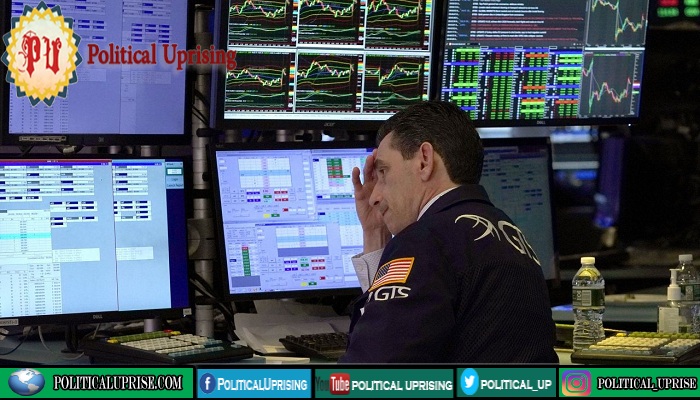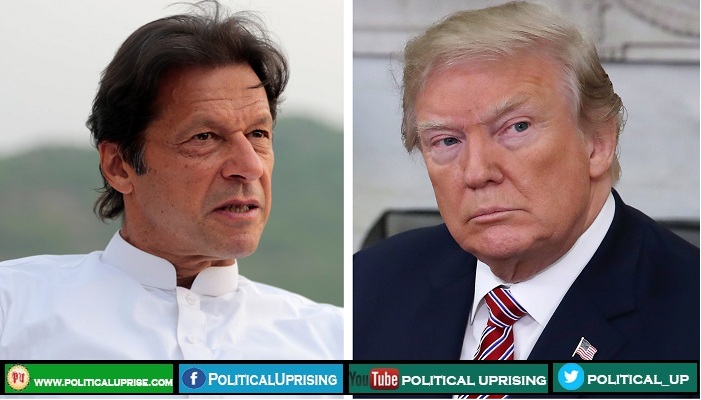Dow Jones Industrial Average falls 1600 points at open after President Trump’s decision to severely restrict travel from Europe to the United States.
Trading halted within minutes of opening bell for the second time this week after S&P falls more than 7 percent.
Promises to shore up economies against coronavirus failed to stem the global rout in stocks on Thursday,as United States President Donald Trump’s travel ban and his failure to fulfill expectations of a “major” measures to buoy businesses and individuals against outbreak disruptions further accelerated investor fears.
EU stock markets bounce back as stimulus expectations grow
The S&P 500 tanked more than 6 percent at the open and within minutes crossed the 7 percent threshhold,triggering so-called circuit breakers that halt stock trading for 15 minutes for the second time this week.
Joe Biden gets commanding edge in US Democratic race
The historic 11-year bull run in the S&P 500- which is a barometer for the health of US retirement accounts and college savings plans is now officially over as the index enters bear market territory defined by a loss of 20 percent off recent highs.
The Dow Jones Industrial Average fell 1700 at the open extending its slide into bear market territory which it entered on Wednesday.
The Nasdaq Composite Index fell more than 7 percent.
The double blow of mounting coronavirus fears and an oil price war unleashed by Saudi Arabia has devastated investor and business confidence, punishing shares, hammering oil prices and tightening credit markets.
The US Federal Reserve on Thursday pumped $198bn into the financial system to unclog the plumbing in the short-term funding market that banks rely on to conduct their day-to-day operations.
Homeless at high risk for coronavirus outbreak
In a televised address to the nation Monday evening, President Trump labelled coronavirus “foreign” and announced that all travel to the US from Europe will be suspended for 30 days.
He also mentioned previously floated stimulus measures including tax breaks, aid for small businesses and a cut in the payroll tax designed to bring relief to those whose livelihoods could be derailed by coronavirus disruptions.
But in the absence of greater clarity surrounding these measures, investors could not keep the darkness at bay.US markets are now looking to Capitol Hill where Democrats in the House of Representatives are expected to unveil a stimulus bill later on Thursday.
Trump was not the only one unveiling measures that failed to assuage investor fears.
On Thursday, the European Central Bank announced a stimulus package to shore up the Eurozone against coronavirus economic hits, including boosting its bond buying programme and making cheap loans available to banks to keep credit flowing smoothly.
But the ECB opted to leave interest rates unchanged, disappointing investors who had expected policy makers to lower rates following emergency cuts by both the US Federal Reserve and the Bank of England.
Republicans seniors members in self-quarantine over coronavirus
“While these measures are pretty substantial, we do not think the ECB will be able to change investor sentiment any more than the Fed could last week,” said Andrew Kenningham, chief europe economist at Capital Economics.
The Fed’s surprise half a percentage point rate cut last week failed to boost investor sentiment.
Energy stocks continued to come under pressure on Wall Street, as as oil prices kept faltering following Monday’s crash.
Oil markets are getting hit with a demand shock from coronavirus as appetites for crude ebb with business activity, and a supply shock from Saudi Arabia which lowered the price it charges for oil and is flooding an already oversaturated market with crude in retaliation for Russia refusing to support deep output cuts.
Global benchmark Brent crude was down more than 6.5 percent to around $33 a barrel on Thursday, while US benchmark West Texas intermediate crude was off more than 5 percent to around $31 a barrel.



